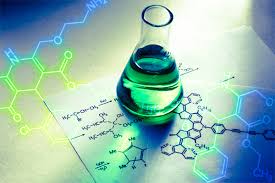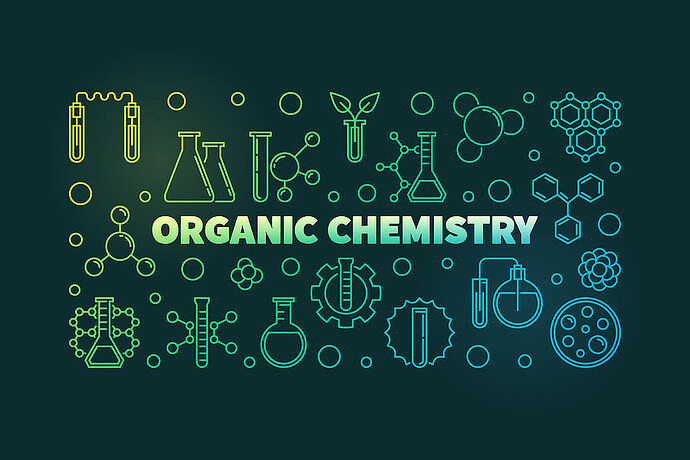What is the best way to prepare for organic chemistry?
Hello @Daman
-
Master basic organic chemistry ( GOC and isomerism ye dono topic ache se karo).
-
Understand reaction mechanism properly.
-
Practice lots of questions and clear your doubts.
-
Take help from your mentor.
Use this form to book a free demo session with us. (Only available for first time users who have never been a part of the Exprto community before.)
I won’t list every chapter individually and write how important they all are. I will list all things I was told by my personal JEE mentor before I started my preparation. I took a JEE mentorship program from Exprto which guided me throughout my preparation.
A sensible series of do’s and don’ts to follow - (Imp. In IIT JEE mains and advanced)
1- Don’t waste too much time on iupac and basic heterosis.
2-Tautomerism and stereoisomerism are more likely asked questions in JEE.
3-Hydrocarbons - mainly halogenation of alkanes, electrophilic addition to alkenes/alkynes, especially those whose mechanism is related to stereochemistry, various reducing and oxidizing agents.
4-Haloalkanes - SN and elimination reactions, poly halogen compounds, uses, physical properties (mostly ignored by students, but likely to be asked in exams)
5- Alcohols - test methods, oxidation, Esterification, Glycols, Glycerin, Polyhydroxy, Applications, Industrial Production Processes.
6- Ether Ring Opening, Reaction with HX
7- Carbonyl - Whole chapter, different types of condensation + conjugate addition, test methods (top priority) + special focus on HCHO polymerization.
8- Carboxylic acid – mostly his GOC-type questions regarding acidity or decarboxylation, heating effects, etc. Grignard reaction with acid derivatives.
9- Amines- its GOC-based questions on basic strengths, aromaticity, testing and separation methods, dyes, and azo couplings.
Aromatics require additional weighting in each chapter and are frequently queried for their specific reactions, tests, stability, order of reactivity, etc.
Finally focus entirely on biomolecules and polymers, inserts, samples, and previous year issues from these units.

Organic chemistry can be a challenging subject for many students, but with the right approach and resources, it can also be manageable and even enjoyable. Here are some tips that can help you prepare effectively for an organic chemistry course:
- Review fundamental concepts: Before diving into organic chemistry, make sure you have a strong foundation in basic chemistry concepts, such as chemical reactions, thermodynamics, and kinetics.
- Get organized: Keep a notebook or binder to organize your notes, assignments, and practice problems. This will make it easier to review the material and study for exams.
- Read the textbook: Make sure to read the textbook regularly and keep up with the material as it is covered in class. If there are parts that you don’t understand, make a note of them and ask your instructor for clarification.
- Practice, practice, practice: The more problems you solve, the more confident you will become in your understanding of the material. Try to work through as many practice problems as possible and make sure you understand the reasoning behind each step.
- Participate in class: Ask questions, participate in class discussions, and don’t be afraid to seek help from your instructor or classmates.
- Study with a group: Studying with classmates can be a great way to review the material and learn from one another. You can also compare notes and help each other understand difficult concepts.
- Utilize online resources: There are many online resources available that can help you prepare for organic chemistry, such as videos, tutorials, and practice problems.
Remember, preparation and hard work are key to success in organic chemistry. By following these tips, you can give yourself the best chance of understanding the material and doing well in your course.
For much guidance join exprto and be guided towards your preparation.
1.Do practice problems.
The number one way to study organic chemistry is by doing practice problems. The more problems you do, the better your understanding will be. Once you have mastered one concept, move on to problems that are more difficult.
- Do a set of practice problems from your book every day to keep up with the material.
2.Make flashcards.
Organic chemistry is all about learning chemical structures and reactions. There is also a lot of vocabulary that is specific to the subject. It is very difficult to understand the material if you don’t know what all of the words mean. Use flashcards to help you learn the vocabulary.
- Once you have mastered the vocabulary, make new flashcards for reactions and structures.
3.Form a study group.
Study groups are a great way to check your understanding and gain new insight into the material. When explaining a concept to others, you may realize that there is something you were missing. This can lead to a deeper understanding of the material itself. At the same time, other members of the group can help you learn concepts that are difficult for you.
- Choose study partners that learn at the same rate you do. If the group is too fast or too slow for you, it won’t be as beneficial.
4.Study every day.
Studying for an hour or two each day is a much better use of your time than trying to study for 5+ hours all at once. With smaller, more frequent study sessions, you can focus on individual concepts and not burn yourself out trying to cram all of the information into your brain at once.
- Break up your studying into large and small blocks of time. If you only have ten minutes, flip through some flashcards. If you have an hour or two, do practice problems.
Join Exprto for more Answers
